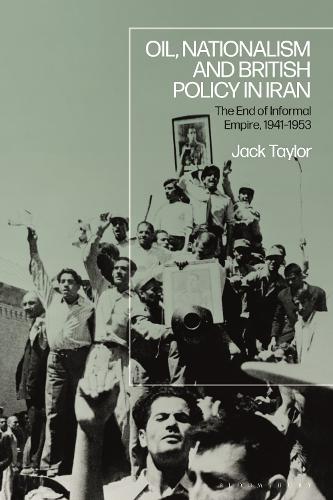
Oil, Nationalism and British Policy in Iran: The End of Informal Empire, 1941-1953
(Hardback)
Available Formats
Publishing Details
Oil, Nationalism and British Policy in Iran: The End of Informal Empire, 1941-1953
By (Author) Jack Taylor
Bloomsbury Publishing PLC
Bloomsbury Academic
25th January 2024
United Kingdom
Classifications
Professional and Scholarly
Non Fiction
Middle Eastern history
International relations
327.41055
Physical Properties
Hardback
240
Width 164mm, Height 238mm, Spine 18mm
520g
Description
This book explores British policy in Iran against a backdrop of decolonisation to demonstrate the central place this nation had in Britains postwar imperial reorientation. Focusing on the period leading up to Operation Ajax and using a wealth of primary sources, it shows that although Iran was not part of Britains rose coloured map, it was a key part of the informal empire; an imperial network sustained through economic and corporate influence. Both a critical bulwark against Soviet expansion and a vital source of oil, successive British governments sought to enhance British power in Iran during and after the Second World War. Highlighting the different forms and textures of British imperialism in the mid-20th century, Jack Taylor shows how as empire was coming to an end in regions such as India and Palestine, imperial interests were reoriented towards other, more profitable areas in the Middle East. However, this book shows that as the British sought to entrench themselves more firmly in Iran, resentment was on the rise in the form of populist nationalism. Demonstrating how British policy makers failed to understand these movements, Oil, Nationalism and British Policy in Iran shows how the US government intervened to restore Iranian autocracy. In doing so, the US supplanted Britain as the foremost power in the Persian Gulf and brought half a century of informal empire to a close.
Author Bio
Jack Taylor is an independent researcher and historian with an interest in the intersections between labour movements, decolonisation and post-war British economic policy. He holds a PhD in History from University College London, UK.
